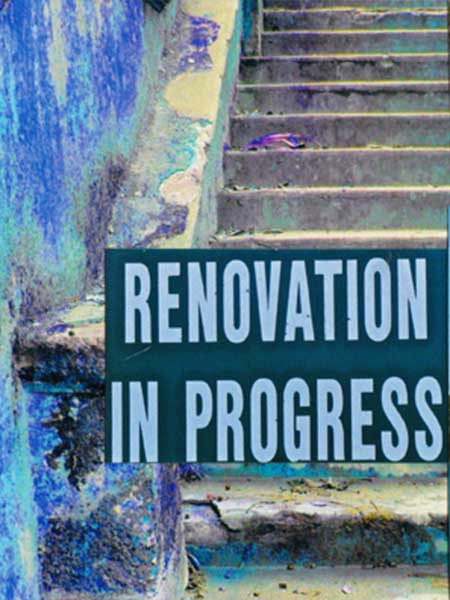The Twelve Steps offer compulsive eaters a framework for living an integrated life, an opportunity to clear the wreckage of our pasts, and, hopefully, relief from the obsession around food. The Tools of Recovery are daily practices that members have found help us on the journey toward abstinence and higher living. The tools vary in their purpose and relevance. They can act as guardrails to keep us on track, outlets for creative and spiritual expression, or conduits to build community. We have invariably found that the more we incorporate these practices, the stronger our collective recovery. The items listed below are not exhaustive. We ultimately must each build our own toolbox of resources to serve our own particular needs, and as we find what works for us we will continue to share with and teach one another.
Fellowship is an essential component to recovery. Meetings provide a safe space for compulsive eaters to connect over our common struggles with food. By regularly sharing our stories we break down the barriers of shame that isolate us and offer hope to newcomers that relief from compulsive eating is possible. Many secular members identify the group wisdom as a guiding higher power. Meetings are also where we study the Steps, Principles, and Traditions of Twelve-Step living and find sponsors.
Sponsors are members who guide us through the Steps up to their level of experience. They help us to determine and commit to a food plan and provide a source of accountability. It is recommended that new members begin working with a sponsor as soon as possible.
Check Finding a Sponsor for more information.
Weekly OA Secular Sponsor Workshops
Check the meeting schedule for the weekly Monday Secular OA Sponsor Workshop (9am PT / Noon ET). You can also listen to the recordings.
A plan of eating is not the same as abstinence. Food plans are the boundaries we set around consumption that help us to avoid problematic substances and eating behaviors, which trigger the physical phenomena of craving. For some, that might include abstaining from specific ingredients, such as sugar or flour, while others may need to define when, where, and how much they eat. Each member must design a personalized food plan that addresses his or her unique relationship to food. Most of us find our food plans evolve over time, which is why it’s helpful to seek the guidance of a sponsor and professionals, like nutritionists.
Another means by which we access collective wisdom is through literature. While many secular overeaters do find traditional AA and OA literature useful, it frequently reinforces Judeo-Christian theology. However, these days there are many secular as well as feminist Twelve-Step writings available, including The Alternative 12 Steps: A Secular Guide to Recovery, The Little Book: A Collection of Alternative 12 Steps, and Beyond Belief: Agnostic Musings for 12 Step Life (see Book Recommendations). Many members find it useful to read on a regular basis and to continue our study of addiction and nutrition beyond only Twelve-Step literature.
Rather than reacting to life in ways that are destructive, a regular meditation practice helps us to respond with intention. Meditation cultivates mindfulness, which is useful in assessing hunger and satiation when it comes to food. Overeating often is correlated with dissociation and mindless eating. Meditation is a way of being present in the moment. It doesn’t have to mean sitting silently, either. Playing music, knitting, and going for a walk can all be forms of meditation.
Compulsive eating is a physical disease as well as a psycho-emotional one. Both over- and under-eating can wreak havoc on our health. Part of the healing process is learning to take care of our bodies, which for some will mean incorporating movement and for others may require limiting exercise. Physical movement is one of the few tools scientifically proven to regulate emotion and promote well-being.
The relationships built through program are the soil from which growth sprouts. It’s recommended that newcomers make three outreach calls a day to fellow members (check the newcomer FAQ question, Do I have to call people?). Calls, texting, email, FaceTime, Zoom, and social media allow us to stay connected between meetings and help to reroute neural pathways, so that when we are triggered we reach out for help rather than for food.
It’s often said in the rooms that the only way to keep recovery is to give it away. We get out of the program as much as we put into it. Addiction by its nature is a self-centered behavior loop. We break the cycle by getting outside of ourselves. Service imbues our lives with purpose and meaning. Many members begin by volunteering to help out at meetings or taking on service positions like being the time keeper, weekly caller, or Zoom host, but the farther along we progress on this journey, many of us find our entire lives become an act of service.
Would you like to volunteer with us?
Creating action plans around difficult areas of our lives creates structure, security, and a sense of forward progress. Some members may need an action plan to help them implement the tools of recovery into their daily lives. Others may need specific guidelines for navigating certain relationships, career, or finances. Often we put into place action plans when traveling or venturing outside of our routines.

Join Email List | Contact | Privacy Policy
© 2024 Secular Overeaters
*SecularOvereaters.org is not affiliated with Overeaters Anonymous, Inc., nor any other official organization.